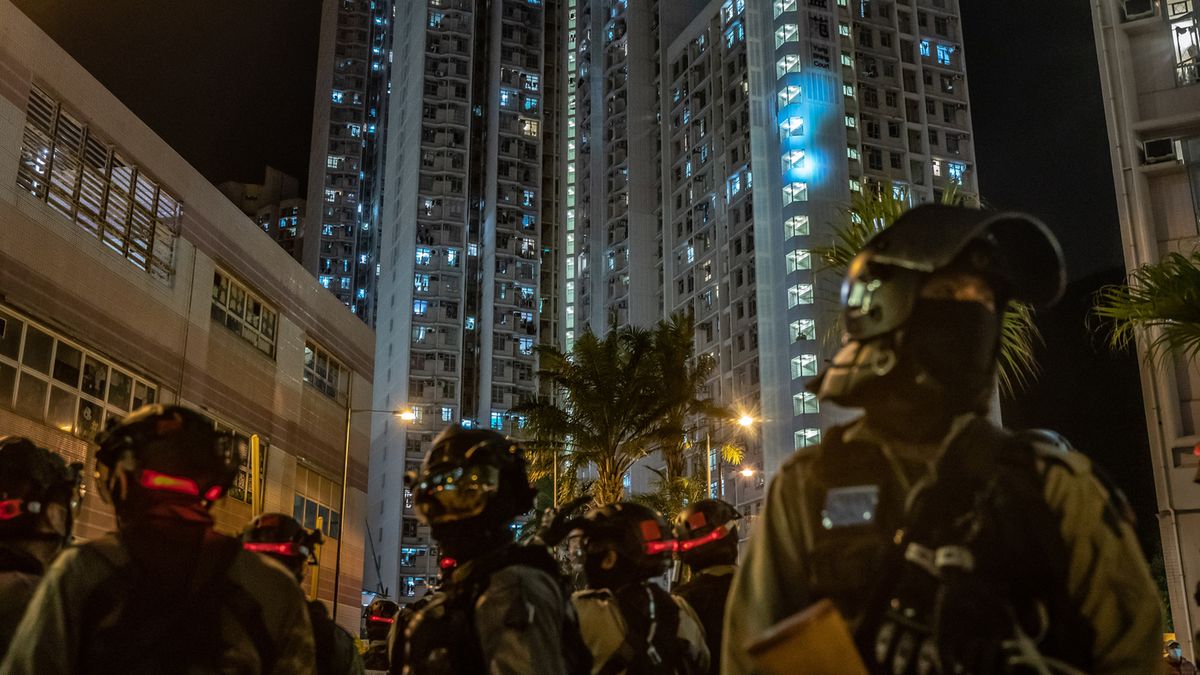Hong Kong battles a third wave of COVID-19 amid continued political resistance

A few minutes every morning is all you need.
Stay up to date on the world's Headlines and Human Stories. It's fun, it's factual, it's fluff-free.
Since the beginning of the battle against the coronavirus pandemic, Hong Kong has been praised for its handling of the outbreak. Now though, the city is being faced with a third wave of infections and a record number of locally transmitted cases were recorded over the weekend.
This third wave is looking to be the city’s most severe battle with the virus yet, with 41 new local coronavirus cases recorded on Monday, breaking the city’s previous record of 28 cases, which had been recorded in a single day in March. Of these 41 new cases, nearly half originated from an unknown source.
This increase brings the total number of cases in the city to 1,522.
Since the beginning of the outbreak, the spread of the virus has generally been slow, with very few locally transmitted infections recorded from mid-April up through June. Some credit this success to tight social distancing controls and the widespread use of face masks – a practice left over from the city’s battle with the SARS epidemic in 2003.
On Monday, Hong Kong Chief Executive Carrie Lam announced that the city would reimpose social distancing laws, most of which were relaxed in mid-June. The guidelines she outlined in her press conference included mandating the wearing of masks on public transport, limiting public gatherings and shutting down businesses where the risk of spreading the virus are high, such as gyms and bars.
Since the beginning of the outbreak, the Hong Kong government has employed other measures to control the spread of the virus, such as closing schools, canceling public events and discouraging public gatherings.
However, given the recent political unrest in the city, some believe that the government has been using the social distancing restrictions as an excuse to denounce or squash anti-government events.
Over the weekend, Hong Kong’s pan-democratic camp held an unofficial primary election to decide the best candidates to run in the upcoming Legislative Council elections. Lam labeled this event as a breach of COVID-19 gathering rules.
Hong Kong police also banned an annual pro-democracy march on July 1 on the grounds of public health risks due to the pandemic. However, thousands still went out to protest against the contentious national security law from Beijing that had taken effect just one day before.
Furthermore, 13 prominent democracy activists – including media tycoon Jimmy Lai – appeared in court on Monday, facing incitement charges over their roles in the organization of the June 4 candlelight vigil to commemorate the Tiananmen Square crackdown despite a police ban.
The annual vigil was banned for the first time this year with law enforcement citing public health concerns, despite the city recording almost no new locally transmitted cases for the two weeks leading up to the event.
The 13 activists stood accused of inciting an unlawful assembly and could face up to five years in prison if found guilty.
Prominent pro-democracy activist Lee Cheuk-yan was among those who faced charges which he called a “complete denial of our rights” under the Basic Law, the city’s mini-constitution.
“This is political persecution,” said Lee. “The real incitement is the massacre conducted by the Chinese Communist Party 31 years ago.”
Some of the activists who appeared in court on Monday are also set to face further pending inquiries related to last year’s pro-democracy demonstrations.
Have a tip or story? Get in touch with our reporters at tips@themilsource.com




Comments ()